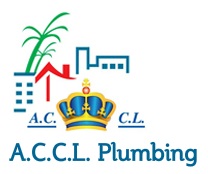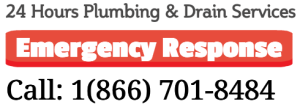As a homeowner, having a basic understanding of plumbing can save you time, money, and stress. Plumbing issues can arise unexpectedly, and knowing what to do can help you address problems before they become major emergencies. In this article, we’ll cover the essential plumbing knowledge every homeowner should know.
Understanding Your Plumbing System
Your home’s plumbing system consists of two main components:
1. Water Supply System: This system brings fresh water into your home, distributing it to fixtures and appliances.
2. Drainage System: This system removes wastewater and sewage from your home, carrying it away to the sewer or septic system.
Basic Plumbing Components
Familiarize yourself with these essential plumbing components:
1. Shut-Off Valves: Locate the main shut-off valve and individual shut-off valves for fixtures and appliances. Knowing where they are can help you quickly turn off the water supply in case of an emergency.
2. Pipes: Understand the different types of pipes in your home, such as copper, PVC, and PEX. Each type has its own benefits and potential issues.
3. Fixtures: Sinks, toilets, showers, and bathtubs are all fixtures that require proper maintenance and repair.
4. Water Heater: Your water heater provides hot water for your home. Regular maintenance can extend its lifespan and improve efficiency.
Common Plumbing Issues
Be aware of these common plumbing issues and how to address them:
1. Leaks: Leaks can occur in pipes, fixtures, or appliances. Look for signs of water damage, and address leaks promptly to avoid further damage.
2. Clogs: Clogs can occur in drains, toilets, and pipes. Use a plunger or plumbing snake to clear clogs, or call a professional plumber if necessary.
3. Frozen Pipes: Insulate exposed pipes in cold climates to prevent freezing. If a pipe freezes, apply heat carefully to thaw it.
4. Low Water Pressure: Low water pressure can be caused by a variety of factors, including mineral buildup or faulty pressure regulators. Identify the cause and address it accordingly.
Regular maintenance can help prevent plumbing issues and extend the lifespan of your plumbing system:
1. Inspect your pipes: Check for signs of wear, corrosion, or damage.
2. Check your water pressure: Ensure the water pressure is within the recommended range.
3. Maintain your water heater: Drain and inspect your water heater annually to prevent sediment buildup.
4. Be mindful of what you put down drains: Avoid pouring grease, food scraps, and other debris down drains, as they can cause clogs.
When to Call a Professional
While some plumbing issues can be addressed DIY, others require professional expertise. Call a licensed plumber if:
1. You’re unsure about a repair: If you’re not comfortable with a repair or diagnosis, it’s best to seek professional help.
2. The issue is complex: For complex issues, such as sewer line repairs or water heater replacements, hire a professional plumber.
3. You notice signs of water damage: If you notice signs of water damage, such as warped flooring or discolored walls, call a professional plumber to assess and address the issue.
Conclusion
Having a basic understanding of plumbing can help you identify potential issues, perform routine maintenance, and address emergencies. By knowing your plumbing system, common issues, and when to call a professional, you’ll be better equipped to handle plumbing-related tasks and keep your home safe and functional.

